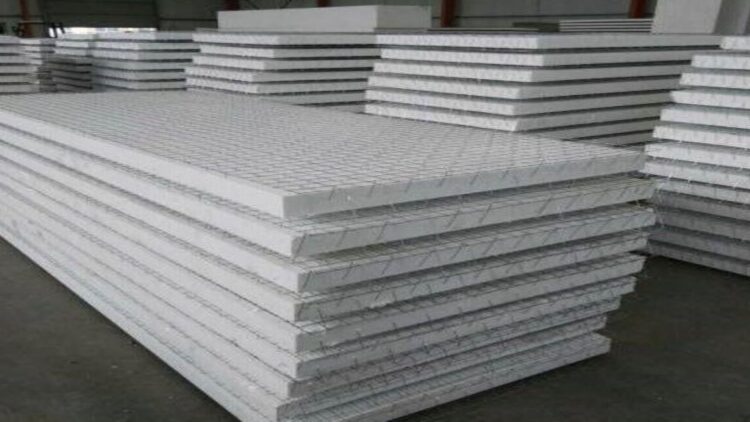Why More Developers Use EPS Panels in Kenya?
The construction industry in Kenya is witnessing a notable shift toward sustainable, cost-effective, and efficient building solutions. One innovation leading this change is the adoption of EPS panels, also known as Expanded Polystyrene panels. The demand for EPS panels in Kenya is on the rise, thanks to their versatility, affordability, and insulating properties, which make them ideal for a variety of applications, from residential buildings to commercial complexes.
What Are EPS Panels in Kenya?
EPS panels are lightweight, energy-efficient panels made of an Expanded Polystyrene core, typically sandwiched between layers of steel or other durable materials. This design creates EPS sandwich panels that provide excellent thermal and sound insulation, making them ideal for both wall and roofing applications. The unique structure of these panels has transformed them into a preferred choice for Kenyan developers focused on fast-tracked, affordable, and eco-friendly construction.
Reasons Developers in Kenya Prefer EPS Panels
- Cost Efficiency and Affordable Pricing. EPS panels prices have remained competitive compared to traditional building materials, making them a popular choice for developers in Kenya. These panels are cost-effective not only in terms of material costs but also in installation. Their lightweight nature reduces transportation and labor expenses, as they require minimal equipment for handling and installation. Consequently, projects that incorporate EPS panels are often completed faster and at lower costs.
- Superior Insulation and Energy Efficiency. Kenya’s diverse climate demands construction materials that provide adequate insulation. EPS sandwich panels are known for their excellent thermal insulation, helping maintain comfortable indoor temperatures by minimizing heat transfer. This energy efficiency is particularly beneficial in Kenya, where energy costs can be high, especially in urban areas like Nairobi. By reducing the need for extensive heating or cooling, developers can offer buildings with reduced energy demands, saving occupants on utility bills and contributing to more sustainable urban development.
- Rapid and Flexible Construction. With the high demand for housing and infrastructure, EPS 3D panels technology allows developers to complete projects swiftly without compromising quality. These panels can be easily molded into different shapes and configurations, offering flexibility in design and allowing for customized construction. EPS panels can be used for walls, floors, and roofs, making them adaptable to a wide range of building types, from residential homes to large commercial structures. EPS 3D panels technology also reduces overall construction timelines, which is particularly advantageous for meeting Kenya’s urgent housing needs.
- Environmental Sustainability. Sustainability is a growing concern in construction, and EPS panels align well with this goal. The production and installation of EPS panels have a lower environmental impact than traditional concrete and brick. Additionally, EPS panels are recyclable and can be reused in other construction applications, reducing waste. Leading EPS panels suppliers and EPS sandwich panels manufacturers in Kenya are now focusing on producing eco-friendly panels, catering to developers who prioritize green building practices.
- Durability and Low Maintenance. EPS panels are highly durable and resistant to environmental factors like moisture, pests, and temperature fluctuations. This durability translates into lower maintenance costs, appealing to developers and property owners who want long-lasting, reliable building materials. Furthermore, EPS panels are resilient to seismic activity, which is crucial in areas that experience tremors. Their long lifespan and stability make them a solid investment for Kenya’s construction sector.
EPS Panels Technology in Kenya: The Key Players
As the demand grows, numerous EPS sandwich panels manufacturers and suppliers are emerging to cater to the construction needs in Kenya. These EPS panels suppliers provide a range of options, including standard EPS panels, fire-resistant panels, and EPS 3D panels technology. With advanced manufacturing processes, suppliers are now able to produce panels that meet the highest quality standards, offering reliable solutions for developers seeking innovative construction materials.
Conclusion
In Kenya, EPS panels are revolutionizing the construction landscape by offering a cost-effective, durable, and eco-friendly alternative to traditional building materials. With competitive EPS panels prices, high insulation properties, and the flexibility of EPS 3D panels technology, these panels meet the evolving demands of modern construction. As more developers and builders recognize the benefits, EPS panels are likely to become a cornerstone of Kenya’s future infrastructure, supporting the growth of efficient, sustainable, and affordable buildings across the country.

